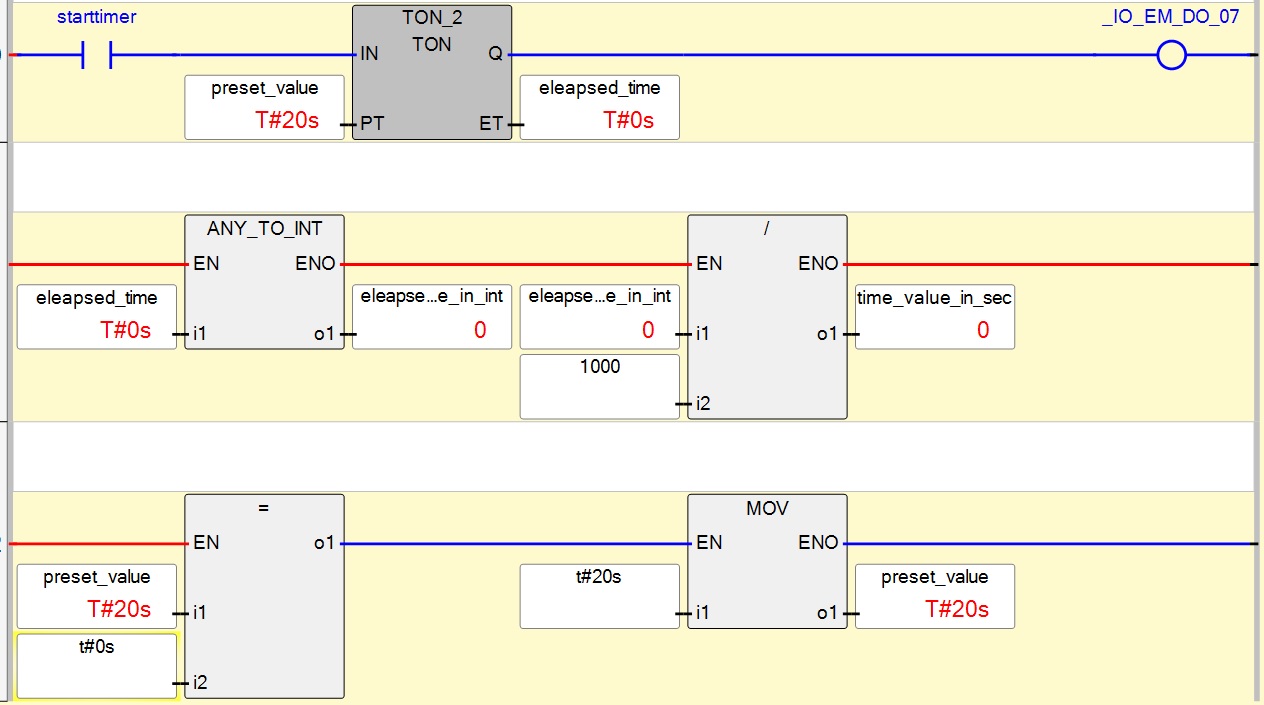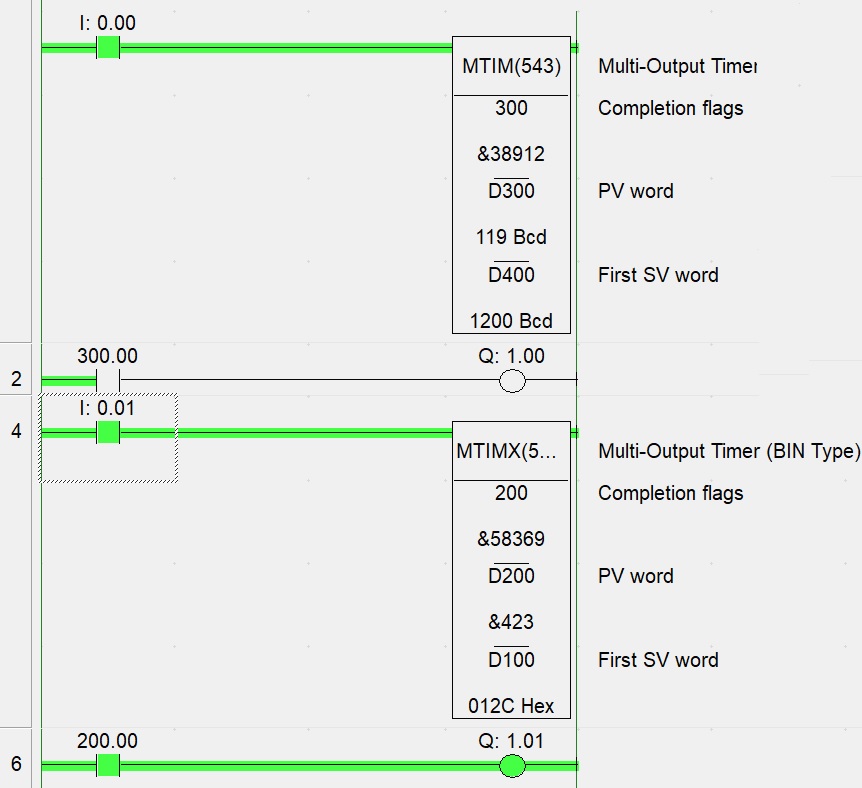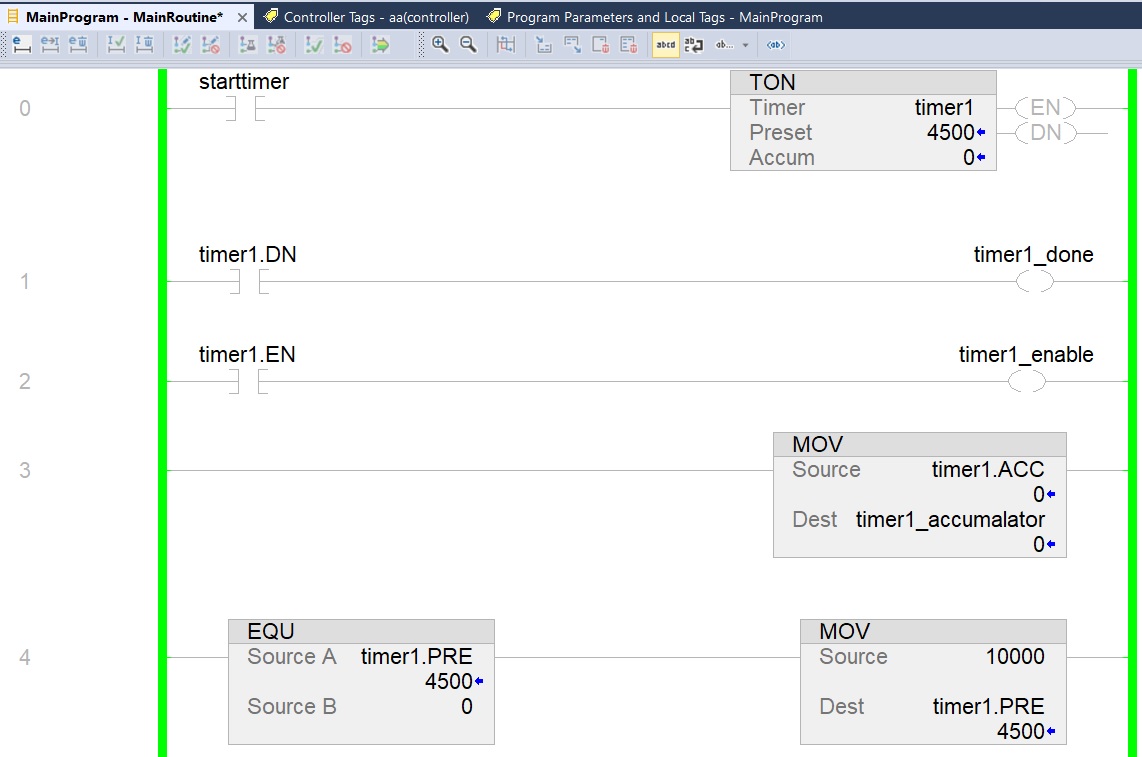Share on Facebook
Share On Twitter
Share on LinkedIn
Share on Whatsapp
The "if-else" statement is a conditional statement used in programming to make decisions based on certain conditions. It allows the program to execute different blocks of statements based on whether a given condition is true or false. The general syntax of an "if-else" statement is as follows:
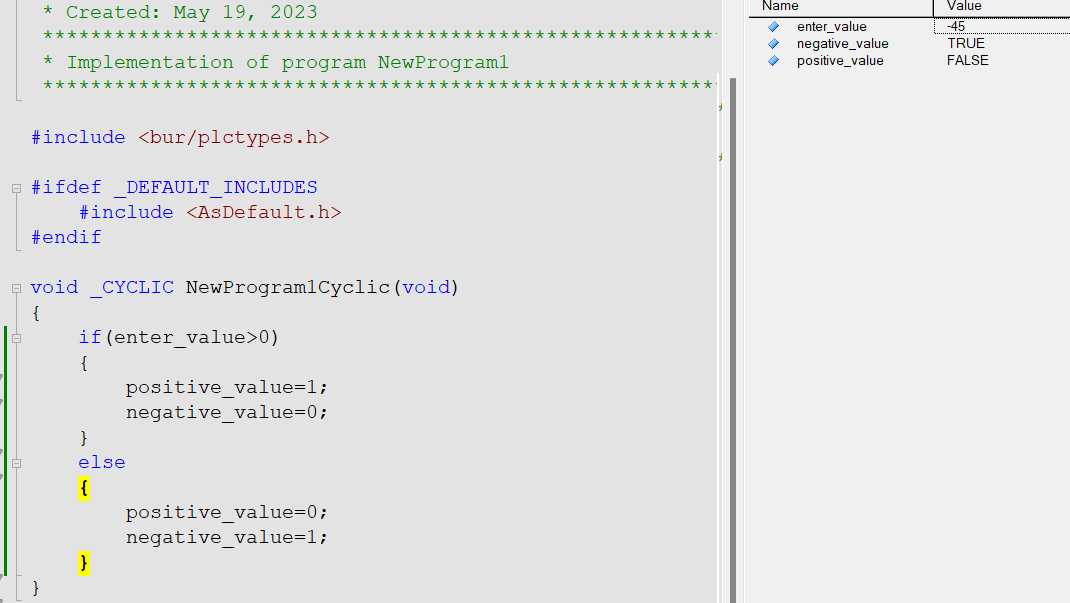
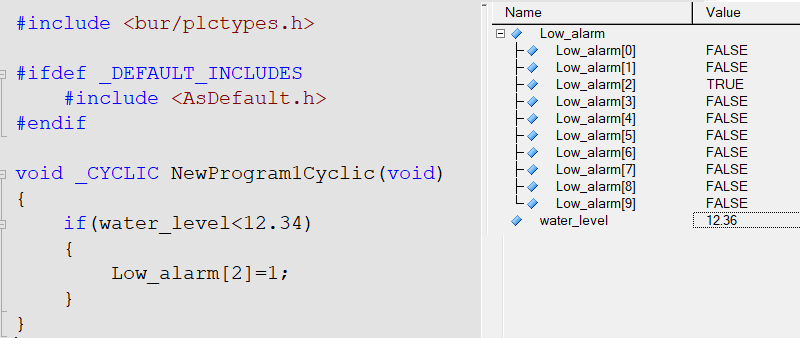
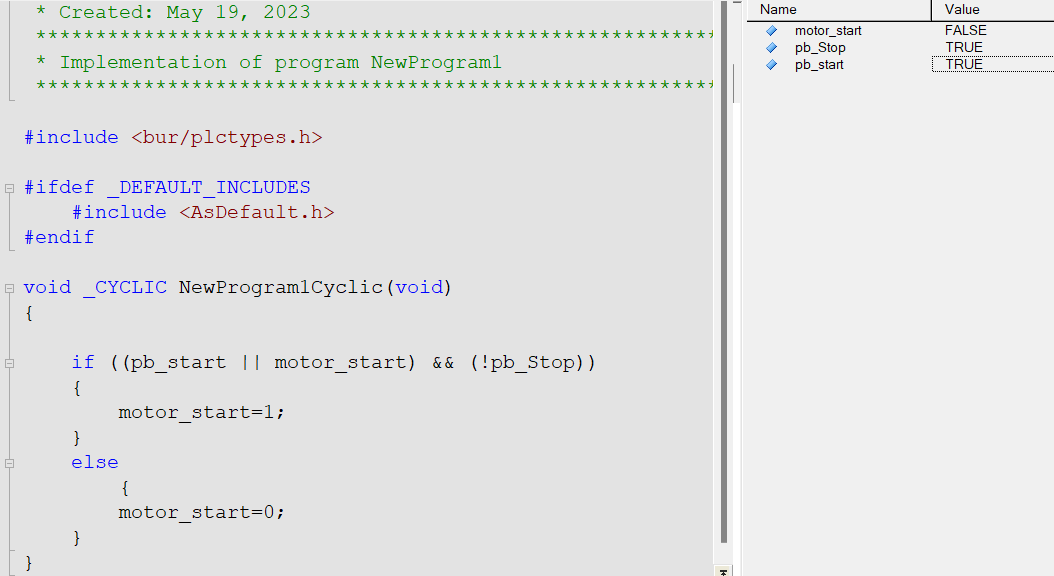
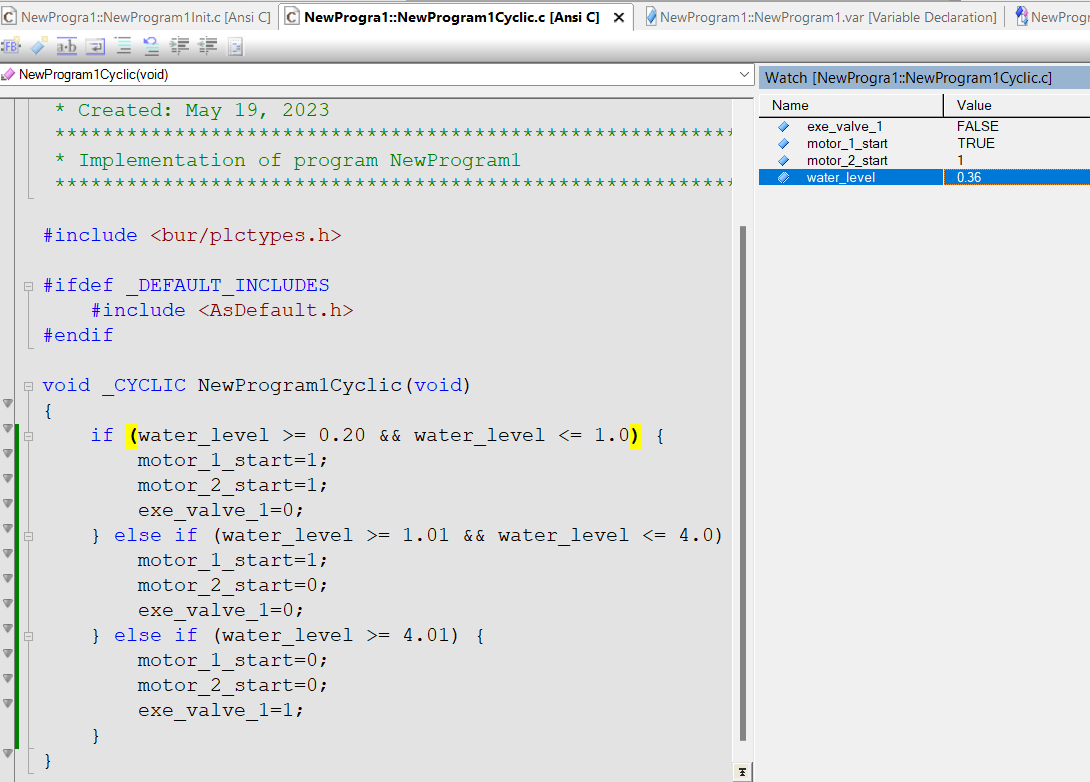

B&R Automation Studio IF ELSE Statement in C Programming
If statement will only perform if the condition inside the parentheses is evaluated to true. if statements are used if are used to start a process or system at specific condition if condition is true. if statements compares two or more than two expression result if the result is true than condition inside the parentheses is executed. if the condition is false than else statement executed.
B&R Automation Studio syntax of an "if-else" statement
The "if-else" statement is a conditional statement used in programming to make decisions based on certain conditions. It allows the program to execute different blocks of statements based on whether a given condition is true or false. The general syntax of an "if-else" statement is as follows:
- IF(condition)
- {
- Statment to be executed if the condition is true;
- }
- else
- {
- Statment to be executed if the condition is false;
- }
B&R Automation Studio Conditional IF Else example In ANSI C
in this example we find entered value is positive or negative if the entered value is positive than postive_value set to 1 and negative_value set to zero. or if the entered value is negative than negative_value set to one and positive value set to zero. In this example, program first check if condition, if the condition is false than else statement executed.

B&R Automation Studio Conditional IF Statement example
above is the simple example of IF Statement in ANSI C program, in this example if the water level is more than 12.45 than low alarm signal set to true. in this example else condition is not used so code execute only if condition is true. once the alarm is set true and water level change and below to 12.45 than alarm is not reset because we don't declare any reset condition.

B&R Automation Studio use of logical operator in if else statement In ANSI C
Logical operators are used to combine two or more condition and evaluate them as a single expression. AND, OR, NOT are main logical operator. Below is the example of logical operator in if else statement In ANSI C. in this example we evaluate a two momentary push button and motor on output to single expression. it is a example of motor start stop using a start stop push button in ansi C. || is logical Or operator, && logical and operator and ! logical not operator.

B&R Automation Studio Multiple if else statements In ANSI C
we can use multiple if else statement in our program. Multiple if else statements are used when we have several conditions and execute different blocks of code depending on which condition is true. below is the example of Multiple if else statements In ANSI C if water level of tank from 0.20 to 1.0 than motor 1 and motor 2 start if the water level between 1.01 to 4.0 than only motor1 start and motor 2 stop if the water level more 4.0 than all motor stop and exhaust valve open for maintain water level.

B&R Automation Studio Nested if else statements In ANSI C
Nested if else statements are used when we want to check a condition inside another condition and execute different blocks of code depending on the outcome of both conditions. Below is the example of nested if else statement B&R automation studio in ANSI C if the first limit switch is operated than gate 1 open command set to 1 and feeding motor stop. we define a condition for check gate1 open status inside the limit switch if condition. if the gate 1 open status is true than gate1_open_sts tag set to 1 otherwise else statement execute condition and set gate1_open_sts tag set to 0.


